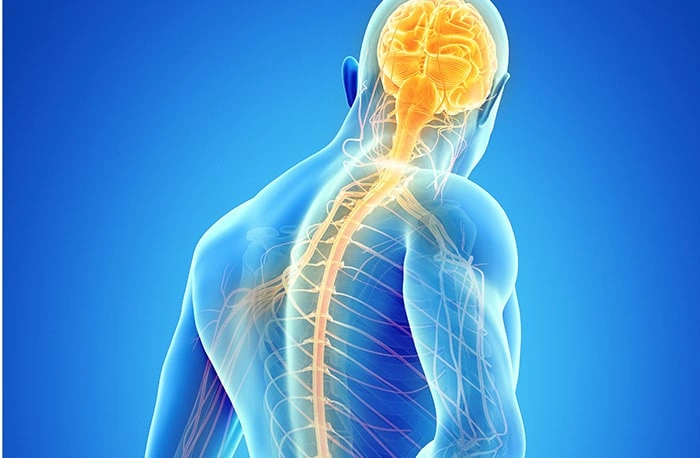
Peripheral Nerve Problem encompass a range of disorders affecting the peripheral nervous system, which includes all the nerves outside the brain and spinal cord. These conditions can significantly impact a person’s ability to feel, move, and function normally. The peripheral nervous system is responsible for transmitting signals between the central nervous system (the brain and spinal cord) and the rest of the body, including the limbs, organs, and muscles. When peripheral nerves are damaged or diseased, it can lead to various symptoms and complications.
Peripheral Nerve Problem can arise from multiple causes, including injury, disease, and chronic conditions. Peripheral neuropathy, one of the most common peripheral nerve issues, involves damage to the peripheral nerves, often resulting in numbness, tingling, pain, and weakness, typically in the hands and feet. Diabetes is a leading cause of peripheral neuropathy, where elevated blood sugar levels can damage nerve fibers over time. Other systemic conditions such as kidney disease, liver disease, and autoimmune disorders like rheumatoid arthritis and lupus can also contribute to nerve damage.
Trauma or injury to peripheral nerves can occur from physical accidents, surgery, or repetitive stress. Nerve injuries might present as acute pain, muscle weakness, or loss of sensation in the affected area. Conditions such as carpal tunnel syndrome, caused by compression of the median nerve in the wrist, are examples of peripheral nerve problems resulting from repetitive strain or overuse.
Infections and inflammatory conditions can also affect peripheral nerves. For instance, viral infections like shingles or Lyme disease can lead to neuropathy as a complication. Inflammatory conditions, such as Guillain-Barré syndrome, involve the immune system attacking peripheral nerves, leading to progressive muscle weakness and paralysis.
Genetic disorders such as Charcot-Marie-Tooth disease can cause inherited peripheral neuropathies, characterized by progressive weakness and atrophy of the muscles. These conditions are often present from childhood and can gradually impair motor and sensory functions.
The symptoms of peripheral nerve problems can vary widely depending on the specific nerves affected and the underlying cause. Common symptoms include:
Diagnosis of peripheral nerve problems generally involves a thorough medical history, physical examination, and specialized tests such as nerve conduction studies, electromyography (EMG), and imaging studies. These assessments help identify the extent and location of nerve damage, as well as the underlying cause.
Treatment for peripheral nerve problems focuses on addressing the underlying cause, relieving symptoms, and improving function. Management strategies may include:
Addressing peripheral nerve problems often requires a multidisciplinary approach involving neurologists, physiotherapists, and other healthcare professionals to provide comprehensive care and support. Early intervention and tailored treatment plans can significantly improve outcomes and quality of life for individuals affected by these conditions.

Peripheral nerve problems refer to disorders affecting the peripheral nervous system, which includes all the nerves outside the brain and spinal cord. These conditions can disrupt the normal functioning of the nerves that connect the central nervous system to the rest of the body, including the limbs, organs, and muscles. The peripheral nervous system is essential for transmitting sensory information from the body to the brain and motor commands from the brain to the muscles.
Peripheral Neuropathy
Nerve Compression Syndromes
Traumatic Nerve Injuries
Inflammatory and Autoimmune Conditions
Genetic and Hereditary Disorders
Infections
Metabolic Disorders
Each type of peripheral nerve problem requires specific diagnostic and treatment approaches tailored to the underlying cause and the symptoms presented.
Numbness or Tingling: Often described as a “pins and needles” sensation, usually occurring in the hands, feet, or limbs.
Pain: Can vary from sharp and stabbing to burning or throbbing, typically affecting the extremities.
Weakness: Difficulty in moving or controlling muscles, leading to issues with grasping objects, walking, or performing daily activities.
Loss of Coordination: Problems with balance and fine motor skills, affecting activities like writing or buttoning shirts.
Sensory Changes: Reduced ability to feel touch, temperature, or vibration, which can increase the risk of injury.
Muscle Atrophy: Wasting or shrinking of muscles due to lack of use or nerve signaling, often seen in chronic conditions.
In conclusion, peripheral nerve problems can significantly impact an individual’s quality of life by affecting sensation, movement, and overall functionality. Early recognition and diagnosis of symptoms such as numbness, tingling, pain, and weakness are crucial for effective management. Addressing the underlying cause through appropriate treatment can alleviate symptoms and improve daily living.
For comprehensive care and expert management of peripheral nerve issues, consulting with a skilled neurosurgeon or neurologist is essential. Dr. Amit Deora, a renowned neurosurgeon in Indore, offers specialized expertise in treating complex nerve disorders. Additionally, seeking guidance from a neurologist in Indore can provide a thorough evaluation and tailored treatment plan. Together, these specialists ensure that patients receive the highest quality of care for their peripheral nerve conditions.